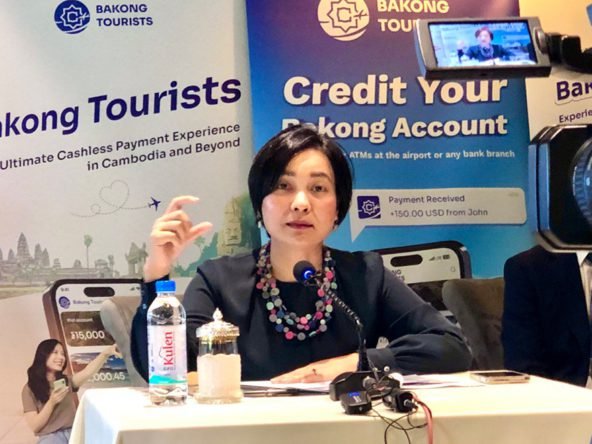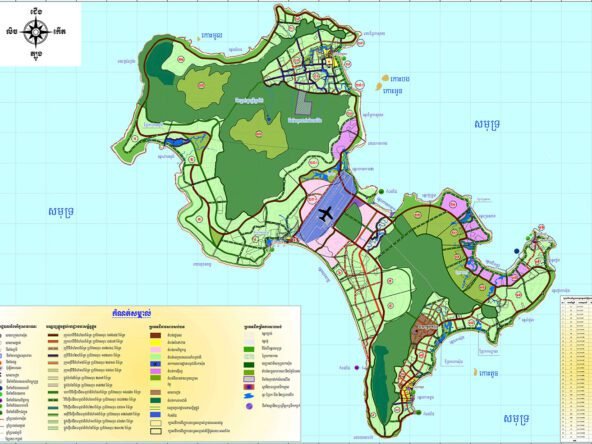Introduction to Foreign Ownership in Cambodian Real Estate
Cambodian Rules for Foreign Ownership – The Cambodian real estate market has emerged as a compelling destination for foreign investors in recent years. Historically, the country has seen rapid growth in its real estate sector, driven by a combination of economic development, political stability, and strategic urban planning. The capital city, Phnom Penh, along with other key regions such as Siem Reap and Sihanoukville, has experienced significant infrastructure improvements and a surge in property developments. This growth trajectory has made Cambodia an attractive destination for property investment.
The allure of Cambodian real estate for foreign investors is multifaceted. Firstly, the relatively low property prices compared to neighboring countries present lucrative investment opportunities. Secondly, Cambodia’s robust economic growth, averaging around 7% annually pre-pandemic, signals a thriving market environment. Additionally, its strategic location in Southeast Asia enhances connectivity and business prospects. These factors collectively contribute to Cambodia’s appeal as both a property investment hotspot and a desirable location for holiday homes.
The legal framework governing foreign ownership in Cambodia is structured to encourage investment while ensuring compliance with national regulations. The Law on Investment and the Law on Land are pivotal in this regard. Foreign individuals are permitted to own property in Cambodia, albeit with certain restrictions. Foreigners can own up to 70% of the units in a condominium building, provided that the building is not within 30 kilometers of a national border. However, land ownership remains restricted, with foreigners only able to lease land for up to 50 years or hold land through a Cambodian entity under specific conditions.
These regulations highlight Cambodia’s balanced approach to foreign investment: promoting economic growth while safeguarding national interests. By understanding the historical context, growth patterns, and legal intricacies of the Cambodian real estate market, potential investors can make informed decisions and capitalize on the opportunities within this increasingly dynamic sector.
Legal Structure and Restrictions for Foreign Investors
The Cambodian real estate sector offers various opportunities for foreign investors, but it is governed by specific laws and regulations that must be understood before making any investments. The primary legal framework guiding foreign ownership in Cambodia includes the 2010 Law on Foreign Ownership and the Land Law of 2001. These laws are designed to balance the interests of both local and international investors while safeguarding national interests.
Under the 2010 Law on Foreign Ownership, foreigners are permitted to own property in Cambodia, but with certain restrictions. The law allows foreign investors to own condominiums and other units in co-owned buildings, provided that the building is situated above the ground floor. This means that while foreigners can own individual units, they are not allowed to own land directly.
Additionally, the Land Law of 2001 stipulates that land ownership is restricted to Cambodian citizens. This means that foreign investors cannot directly own land but can engage in long-term leases or enter into joint ventures with Cambodian nationals. One of the most notable provisions is the 49% ownership rule, which states that foreigners can own up to 49% of the units in a co-owned building, while the remaining 51% must be owned by Cambodian citizens or Cambodian entities.
Foreign investors in Cambodia also need to understand the difference between freehold and leasehold options. Freehold ownership, which is common in many Western countries, implies owning the property outright, including the land on which it stands. However, in Cambodia, foreigners can only obtain freehold ownership of the strata title units in condominiums. On the other hand, leasehold options allow foreigners to lease land for up to 50 years, with the possibility of renewal. This leasehold agreement provides a viable alternative for those looking to invest in properties without violating legal restrictions on land ownership.
Understanding these legal structures and restrictions is crucial for foreign investors aiming to navigate the Cambodian real estate market effectively. By adhering to these regulations, investors can make informed decisions that align with both their investment goals and the legal framework of Cambodia.
Steps and Requirements for Foreigners to Buy Property
Purchasing property in Cambodia as a foreigner involves a structured process that ensures compliance with local regulations and safeguards the investor’s interests. The initial step is conducting thorough research to understand the Cambodian real estate market. This involves identifying potential areas of interest and familiarizing oneself with property values, trends, and regulations.
Engaging with reputable real estate agents is crucial in navigating the Cambodian real estate landscape. These professionals can provide insights into the market, help locate suitable properties, and negotiate favorable terms. Once a potential property is identified, the next step is to undertake a detailed property inspection. This ensures that the property is in good condition and meets the buyer’s expectations.
Documentation plays a key role in the property acquisition process. Foreign buyers must provide essential documents such as a valid passport and proof of funds. Additionally, legal contracts, including the Sales and Purchase Agreement, need to be meticulously reviewed and signed. This is where the expertise of a lawyer becomes invaluable. A lawyer ensures that all contractual terms are clear and legally binding, minimizing the risk of future disputes.
Due diligence is a fundamental part of buying property in Cambodia. This includes verifying the property title to confirm that the seller has the legal right to sell the property and checking for any encumbrances or unpaid taxes. A notary can facilitate this process, ensuring that the transaction is in compliance with Cambodian laws and that the transfer of ownership is properly registered with the relevant authorities.
Foreign buyers should be aware of common pitfalls such as insufficiently vetted property titles, unclear legal terms, and hidden costs. Engaging professionals such as real estate agents, lawyers, and notaries can help mitigate these risks and ensure a smooth transaction. Following these steps diligently will help foreign investors successfully navigate the Cambodian real estate market and secure their desired property.
Benefits and Challenges of Investing in Cambodian Real Estate
Investing in Cambodian real estate offers a variety of significant advantages. One of the main benefits is the potential for high returns on investment. The Cambodian property market has shown steady growth over recent years, making it an attractive option for investors seeking to capitalize on increasing property values. Additionally, the cost of property in Cambodia is relatively lower compared to neighboring countries such as Thailand and Vietnam. This affordability can allow investors to acquire more property or invest in higher-value assets within their budget.
Cambodia’s appeal as a travel destination further enhances the attractiveness of its real estate market. With its rich cultural heritage, historical landmarks, and picturesque landscapes, the country draws a significant number of tourists annually. This influx of visitors creates a robust demand for rental properties, particularly in popular areas like Phnom Penh, Siem Reap, and coastal regions. Consequently, investors can benefit from a consistent rental income stream, further bolstering their return on investment.
However, investing in Cambodian real estate is not without its challenges and risks. Market volatility is a notable concern; the property market can be influenced by various factors, including political stability and economic conditions. Additionally, legal complexities surrounding property ownership, particularly for foreign investors, can pose significant hurdles. The potential for fraud also exists, with cases of unscrupulous agents or sellers attempting to deceive unsuspecting buyers.
To mitigate these risks, it is essential for investors to work with reputable real estate agents and legal advisors. Conducting thorough due diligence before making any investment is crucial. This includes verifying property titles, understanding local laws and regulations, and assessing the market conditions. By taking these precautionary steps, investors can protect themselves from potential pitfalls and make more informed decisions.
In conclusion, while there are undeniable benefits to investing in Cambodian real estate, it is imperative to approach the market with caution. By balancing the potential rewards with an awareness of the inherent risks, investors can navigate the Cambodian real estate landscape more effectively and make prudent investment choices.





